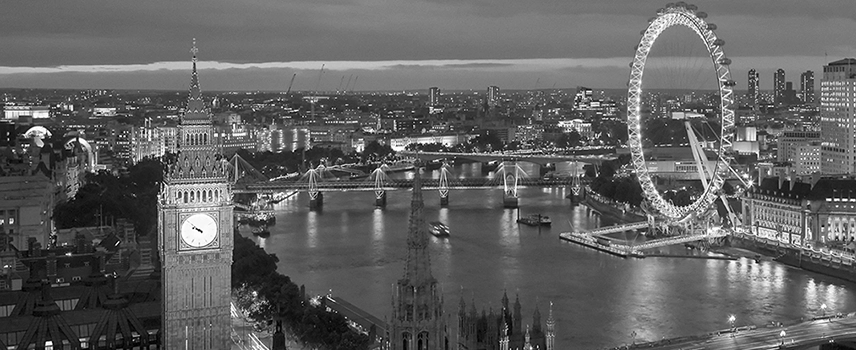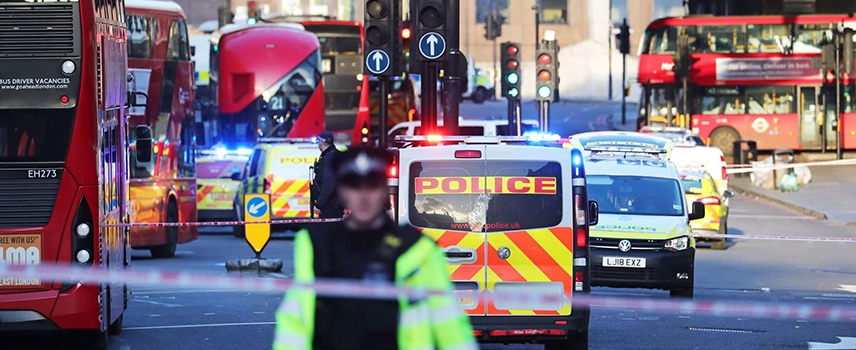How safe is London?
“London has had lots of bad press in recent years about security and terrorist attacks, just how safe is London to visit?”
by Alex Bomberg | 2nd November 2018

Is London Safe? There is a lot of news about crime in London today, so really, how safe is London? In this article we look at the facts, offer some insight and also a few tips on safe travel in London.
London is a great, historical, multicultural city that has seen a great deal of changes and many risks over the years that have affected tourism. The perception of how safe it is in London is very important, moreover, press reports about the terror threat in London or violent crime in the city do suppress tourism, with visitors being turned off by the idea of traveling to London.
The London Mayor’s Office for Policing and Crime (MOPAC) Report of 2016 states that “Crime in the capital has fallen dramatically in the last four years. Londoners are safer now than they were in 2012.”
Two years on, no matter what official figures say, “a safer London” is not how a lot of Londoners see it. In fact, the past year has seen newspaper reports stating that at times, “London has been more dangerous than New York”.
According to the UK's Office for National Statistics, there is a 7% increase in Knife Crime in London so far in 2019.
A few facts about security in London
- The UK for sure has faced policing cuts, and the UK does not have a policy of all police officers being armed like in other countries.
- London has extensive CCTV coverage, maybe more than any other capital city in the world.
- Despite terror attacks in the city, few changes are visible apart from barriers in and around tourist locations and on bridges etc.
- Road closures are in place for events like “the changing of the guard” at Buckingham Palace.
Is it safe to travel to London during COVID-19 pandemic?
Greater London is the area most affected by the pandemic in the UK, it has the highest number of cases and the highest death rate in the UK. Haringey, Tower Hamlets, Hackney and City of London are the London boroughs with the highest infection rate.
Besides, a new variant of COVID-19 has emerged in December 2020, first appearing in London and southeast England. The English variant is 56% more transmissible and has become the dominant form of the virus in the UK.
As a result of this, the UK was placed in lockdown in January 2021 and lockdown measures will be in effect until at least the 22nd of February. Currently, the infection rate remains significantly above levels at which the first lockdown was eased in summer 2020.
It is therefore safer to reschedule any trip to London as the government has required its citizens to stay at home during lockdown and is banning entry to international travellers.

Terrorist attacks in London
London has a long history of terrorist attacks over the past century, mainly Irish Republican or Islamic fundamentalists, the latter of course being more prevalent in the past number of years.
2018 and 2019 each saw one terror attack in London and only a few months in to 2020 and London has already seen an attack in the Streatham area.
In 2017, London saw several terror attacks, the two major ones being the (22nd March 2017) “Westminster attack” that saw six people, including the attacker, dying because of the incident. Around 50 others were also injured.
The other attack was on the 3rd June 2017, the “London Bridge attack” which saw 11 people killed, including the three attackers. In both attacks vehicles were used as the primary means of injuring/killing pedestrians, not dissimilar to the Nice attack in France in July 2016.
The government of the United Kingdom is doing all that it can to tackle terrorism, not only in the capital but across the country. Vital lessons have been learnt and British Intelligence has thwarted a number of potential attacks. According to an Independent Newspaper report in December 2017 MI5's Director General, Andrew Parker, reported that nine terror plots had been foiled that year.
Over and above the Islamic fundamentalist threat to the UK, far-right terrorists do pose an “organised and significant” threat to the UK, according to Mark Rowley, Assistant Commissioner of the Metropolitan Police, revealing in another article in the Independent Newspaper, that four plots have been foiled in the past year.
How much does terrorism affect tourism?
Official reports suggest that tourism is affected far less than you might imagine and only in given areas. After the 2017 terror incidents, tourism in the whole of the UK was up 7%, but down 17% (May to September 2017) for major attractions in central London according to Bernard Donoghue, Director of the Association of Leading Visitor Attractions (Alva).
In the immediate aftermath after an attack, it is fair to say that people will naturally stay away from areas that might be considered a target for terrorism. If London can be described as anything, it would be “resilient”. London has shown in recent history that its people can cope with almost anything and will rally around to get back to "business as usual".
Overall crime in London
The past few years has seen an increase of robberies carried out by gangs on mopeds, some of these robberies have been extremely violent using hammers and knives. Whilst many of the robberies are low-level snatch and grab thefts (i.e. mobile phone theft), a small number have been highly-organised and targeted. These targeted attacks include attacks on high-end Jewellery stores but also include car-jackings, although car-jacking is still quite rare overall and unlikley to affect a visitor to London.
The biggest risk to tourists in London is street robbery and pick pocketing. It is advised to ensure that you secure your valuables on your person and that you are aware of your surroundings. Care should be taken in crowded areas, particularly whilst on the London Underground. While there has been a lot of press about knife crime, it is mostly gang-related and knife attacks on tourists are actually not at all common. Knife crime is on the rise in London and according to the The Mayor’s Office for Policing and Crime (MOPAC) Report 2016-17, knife crime accounts for almost half of all fatal homicides in the capital and has risen 16 per cent in the last two years.
Top tips for keeping safe in London:
- Be aware of your surroundings
- Be aware of the nearest emergency exits
- Secure your valuables, including your telephone
- Plan your day and avoid public transport at night
- Ensure that you have emergency contact details of your embassy or consulate
- Best practice is to use licenced taxis
- Be sure to register your whereabouts with a third-party, such as family members or your office
"Security incidents" are not uncommon in London and can happen for example, if people leave luggage unattended or if there is a suspect package. If there is a "security incident", do not panic, safely move away from the area and if required, monitor the news for further details.
Do ensure that you plan your travel in advance. Our own Travel Advisories are very useful and provide up-to-date information for London, including emergency contact numbers and security and terror-related news feeds. See: London Travel Advice.
If you are still concerned about your personal security and are interested in hiring a bodyguard for your trip to London, please see our Bodyguard Services in London page.